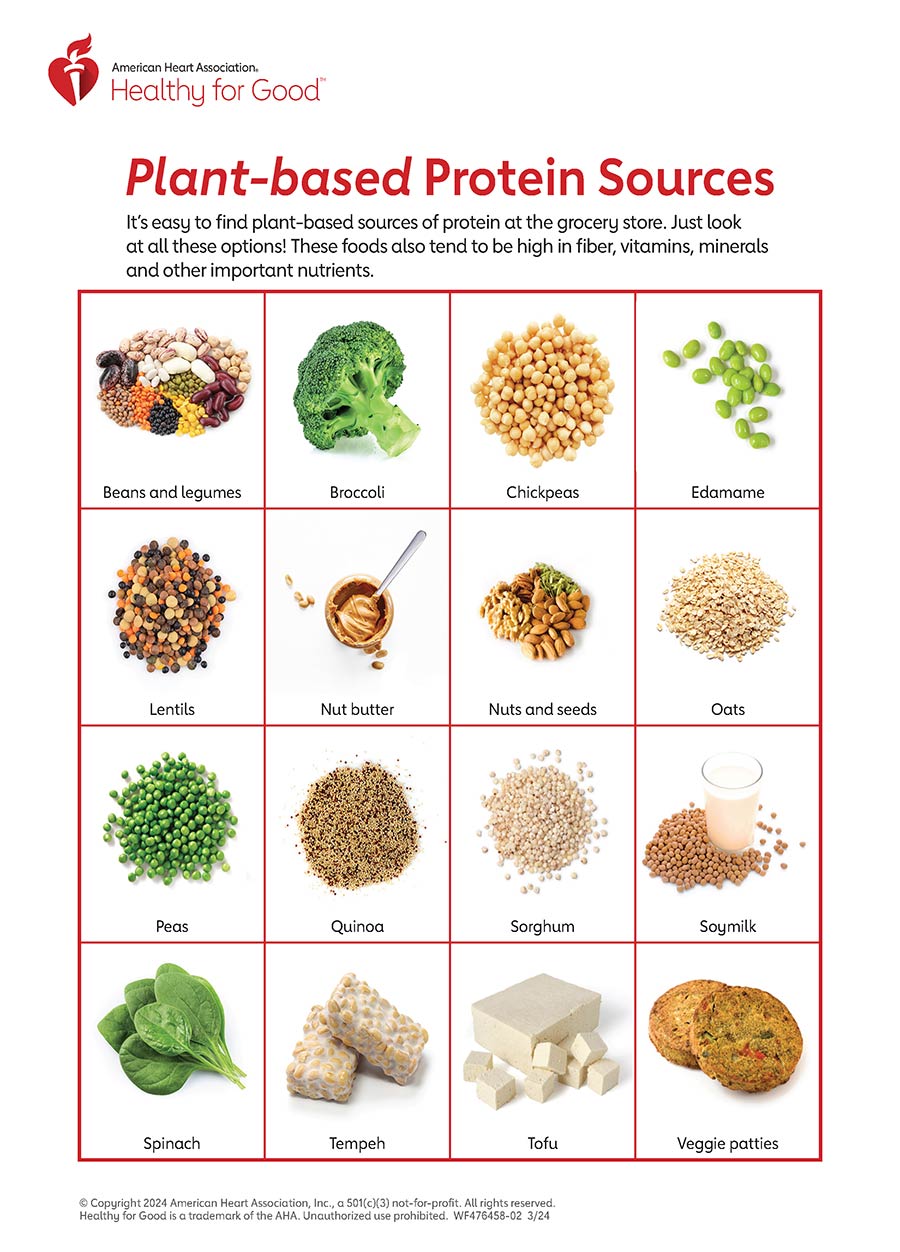3 Plant Based Beef Recipes That Will Impress Even Meat Lovers
3 Plant Based Beef Recipes That Will Impress Even Meat Lovers
Blog Article
All About Healthy Food: Benefits of Embracing Plant Based Options
The discussion bordering plant-based diet regimens has acquired significant attention in the last few years. Many individuals are discovering the possible wellness benefits, nutritional benefits, and ecological effects connected with these dietary selections. As individuals end up being much more familiar with their food's influence on health and sustainability, concerns occur about the usefulness of taking on such a way of life. What specific adjustments can one anticipate, and how might these selections improve not only personal health yet likewise the planet's future?
Recognizing Plant-Based Diet Plans
Although lots of people connect plant-based diets generally with vegetarianism or veganism, these diets can incorporate a large range of consuming patterns that prioritize entire, minimally processed plant foods. Such diet plans frequently consist of fruits, vegetables, whole grains, seeds, legumes, and nuts, while restricting or getting rid of animal items. This flexibility enables people to tailor their nutritional selections according to personal choices and dietary needs. Some may take on a primarily plant-based diet plan while still occasionally consuming meat or milk, frequently described as a flexitarian approach. The focus stays on including even more plant foods, which can lead to a diverse variety of dishes and flavors. Recognizing these numerous interpretations of plant-based eating is necessary for valuing its accessibility and appeal in contemporary food culture.
Health And Wellness Conveniences of Plant-Based Foods
The wellness advantages of plant-based foods are significant, providing a nutrient density advantage that supports general wellness. Research study suggests that these foods can enhance heart health and wellness and play a crucial duty in effective weight management. By incorporating more plant-based options, individuals may enhance their dietary choices and promote lasting health.
Nutrient Density Advantage
Nutrient density plays an essential role in the health benefits of plant-based foods, making them an engaging selection for those looking for a balanced diet. Plant-based foods, such as fruits, vegetables, beans, nuts, and entire grains, are usually abundant in necessary vitamins, minerals, and anti-oxidants while being lower in calories. This high nutrient density allows people to take in fewer calories while still meeting their dietary demands. Furthermore, these foods are packed with nutritional fiber, advertising digestion health and wellness and aiding in weight management. By including nutrient-dense plant-based choices, consumers can boost their overall health and wellness, support their body immune systems, and lower the danger of chronic conditions. Eventually, the nutrient thickness of plant-based foods highlights their significance in a health-conscious lifestyle.
Heart Wellness Improvement

Weight Management Assistance
Along with promoting heart wellness, a plant-based diet can considerably help in weight management. This nutritional strategy stresses whole foods such as fruits, veggies, vegetables, nuts, and entire grains, which are normally reduced in calories and higher in fiber contrasted to animal-based products. The high fiber web content helps raise satiety, lowering overall calorie consumption. Plant-based diet plans are often rich in crucial nutrients while low in undesirable fats, making it less complicated to preserve a healthy and balanced weight. Study indicates that people that adopt a plant-based way of life have a tendency to have lower body mass indexes (BMIs) and experience even more successful weight loss compared to those that eat meat-heavy diets. Subsequently, embracing plant-based choices is a critical choice for efficient weight management
Nutritional Value of Plant-Based Components
Plant-based components are abundant in essential nutrients, supplying a varied selection of vitamins, minerals, and anti-oxidants that add to general wellness. A contrast of healthy protein resources discloses that while animal products are commonly viewed as exceptional, lots of plant-based choices supply appropriate healthy protein and other valuable substances. Recognizing the dietary worth of these active ingredients can assist people make informed dietary choices.
Essential Nutrients in Plants
Nutrient-rich ingredients found in plants supply a varied variety of necessary minerals and vitamins that contribute significantly to overall health. These active ingredients are abundant in vitamins A, C, and K, which support immune function, vision, and blood clot, respectively. Furthermore, plants provide vital minerals such as calcium, magnesium, and potassium, critical for heart health and wellness, muscle feature, and bone stamina. The presence of fiber in plant-based foods help digestion and advertises a healthy and balanced gut microbiome. Anti-oxidants, discovered abundantly in fruits and veggies, aid battle oxidative tension and lower link inflammation. Moreover, several plant foods are low in calories yet high in nutrients, making them an excellent option for those seeking to preserve a healthy weight while making sure optimal nutrient consumption.
Comparing Healthy Protein Resources
Healthy protein sources vary substantially in their dietary accounts, with plant-based components providing distinct advantages. Unlike pet healthy proteins, which typically consist of hydrogenated fats and cholesterol, plant healthy proteins have a tendency to be reduced in these unhealthy components. Legumes, nuts, seeds, and entire grains are abundant in vital amino acids, fiber, vitamins, and minerals. As an example, lentils supply high protein web content alongside significant iron and folate, while quinoa is a full healthy protein, providing all 9 vital amino acids. Additionally, plant-based healthy proteins are commonly accompanied by anti-oxidants and phytochemicals that support total health. The change to plant-based protein resources not only boosts dietary intake yet likewise aligns with sustainable nutritional practices, lowering environmental influence and promoting long-term health and wellness advantages.
Environmental Effect of Plant-Based Eating
As understanding of environment modification grows, many people are exploring lasting nutritional options that can considerably lessen their ecological impact. Plant-based eating has become a substantial factor to minimizing greenhouse gas emissions, which are mainly related to animals production. The growing of fruits, grains, vegetables, and vegetables generally needs fewer sources, such as water and land, contrasted to pet farming. Additionally, plant-based diet plans can lead to reduced logging, as much less land is required for grazing animals or growing pet feed. By changing in the direction of plant-based options, consumers can sustain biodiversity and promote healthier ecological communities. Overall, embracing plant-based eating not just advantages individual health but also represents an essential step towards ecological sustainability and conservation efforts.
Conquering Common Misconceptions
While several people acknowledge the advantages of a plant-based diet, several misunderstandings commonly prevent them from fully embracing this lifestyle. A common idea is that plant-based diet regimens lack sufficient protein; however, countless plant resources, such as vegetables, nuts, and tofu, provide ample healthy protein. In addition, some presume that this diet plan is expensive, when as a matter of fact, staples like beans, rice, and seasonal veggies can be rather affordable. Another misconception is that plant-based consuming is extremely restrictive, whereas it actually supplies a varied range of tastes and foods. Lots of worry that a plant-based diet regimen may lead to shortages, yet with proper preparation, individuals can get all required nutrients, consisting of vitamins and minerals, while enjoying a large variety of tasty dishes. Large Tips for Transitioning to a Plant-Based Lifestyle
Making the shift to a plant-based way of living can be an enhancing experience, though it often needs some guidance to navigate the first modifications. Individuals are motivated to begin progressively, incorporating more fruits, veggies, beans, and whole grains into their dishes while lowering meat and dairy usage. Dish preparation is important; preparing an once a week food selection can help relieve the adjustment and stop final undesirable selections. Exploring new dishes and cooking approaches can also improve the experience and preserve exhilaration concerning plant-based eating. Additionally, joining support system or neighborhoods can supply inspiration and share useful pointers. Staying informed about nutrition assurances balanced meals, preventing deficiencies while cultivating a healthy and balanced, enjoyable plant-based way of living.

Delicious Plant-Based Dish Ideas
Checking out scrumptious plant-based meal concepts can motivate individuals to accept an extra nutritious diet plan. One preferred option is a hearty quinoa salad, including cherry tomatoes, cucumber, and a vibrant lemon-tahini dressing. One more fave is a full-flavored lentil stew, packed with carrots, celery, and aromatic natural herbs, perfect for a reassuring supper. For morning meal, over night oats made with almond milk, chia seeds, and topped with fresh berries offer a healthy beginning to the day. In addition, a vibrant vegetable stir-fry with tofu and a range of vivid veggies can be a fast yet pleasing meal. Velvety avocado salute on whole-grain bread, sprayed with seeds and seasonings, supplies a simple yet flavorful snack. These meals showcase the variety and richness of plant-based eating.

Frequently Asked Questions
Can a Plant-Based Diet Regimen Supply Enough Healthy Protein?
The concern of whether a plant-based diet can give adequate protein prevails. Many sources, consisting of vegetables, nuts, seeds, and entire look at more info grains, can satisfy protein requires efficiently, sustaining a nourishing and balanced diet regimen for individuals.
Are Plant-Based Diet Regimens Appropriate for Children?
The viability of plant-based diets for kids relies on careful planning. Ample nutrients must be guaranteed, including vitamins, minerals, and healthy proteins. With appropriate advice, such diet plans can sustain healthy development and development in kids.
Just how Do I Dine Out on a Plant-Based Diet regimen?
Eating in restaurants on a plant-based diet plan entails seeking restaurants with varied menus, asking for alterations, and exploring vegan-friendly choices. Preparation in advance and communicating dietary choices can enhance the dining experience while maintaining dietary choices.
What Prevail Irritants in Plant-Based Foods?
Typical irritants in plant-based foods include soy, gluten, nuts, and seeds - Plant Based Chicken. Individuals adhering to a plant-based diet needs to know these irritants and review tags carefully to avoid negative responses and assure secure consumption
Can Plant-Based Diets Aid With Fat Burning?
Research indicates that adopting a plant-based diet may assist in weight management as a result of its generally lower calorie density and higher fiber content. This combination can enhance satiety, helping individuals manage their calorie consumption properly. Several individuals link plant-based diet regimens mostly with vegetarianism or veganism, these diet regimens can incorporate a large variety of eating patterns that prioritize whole, minimally refined plant foods. Nutrient density plays a crucial function in the health advantages of plant-based foods, making them a compelling option for those seeking a well balanced diet. Plant-based diet regimens have actually been shown to noticeably enhance heart Extra resources health and wellness, as they typically include elements that sustain cardio function. In addition to advertising heart health and wellness, a plant-based diet can substantially assist in weight monitoring. A typical belief is that plant-based diet plans lack enough healthy protein; nonetheless, various plant resources, such as beans, nuts, and tofu, offer enough protein.
Report this page